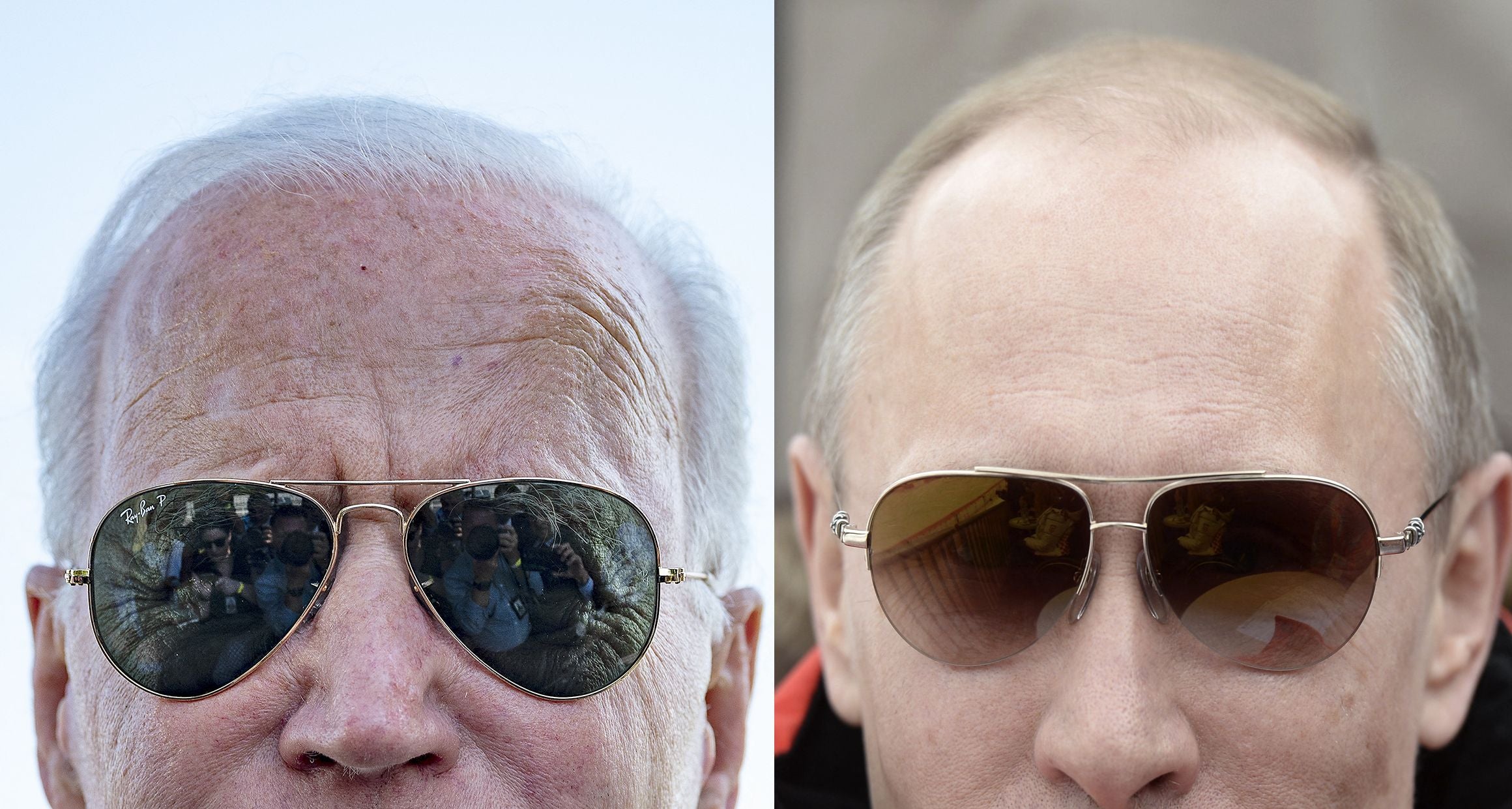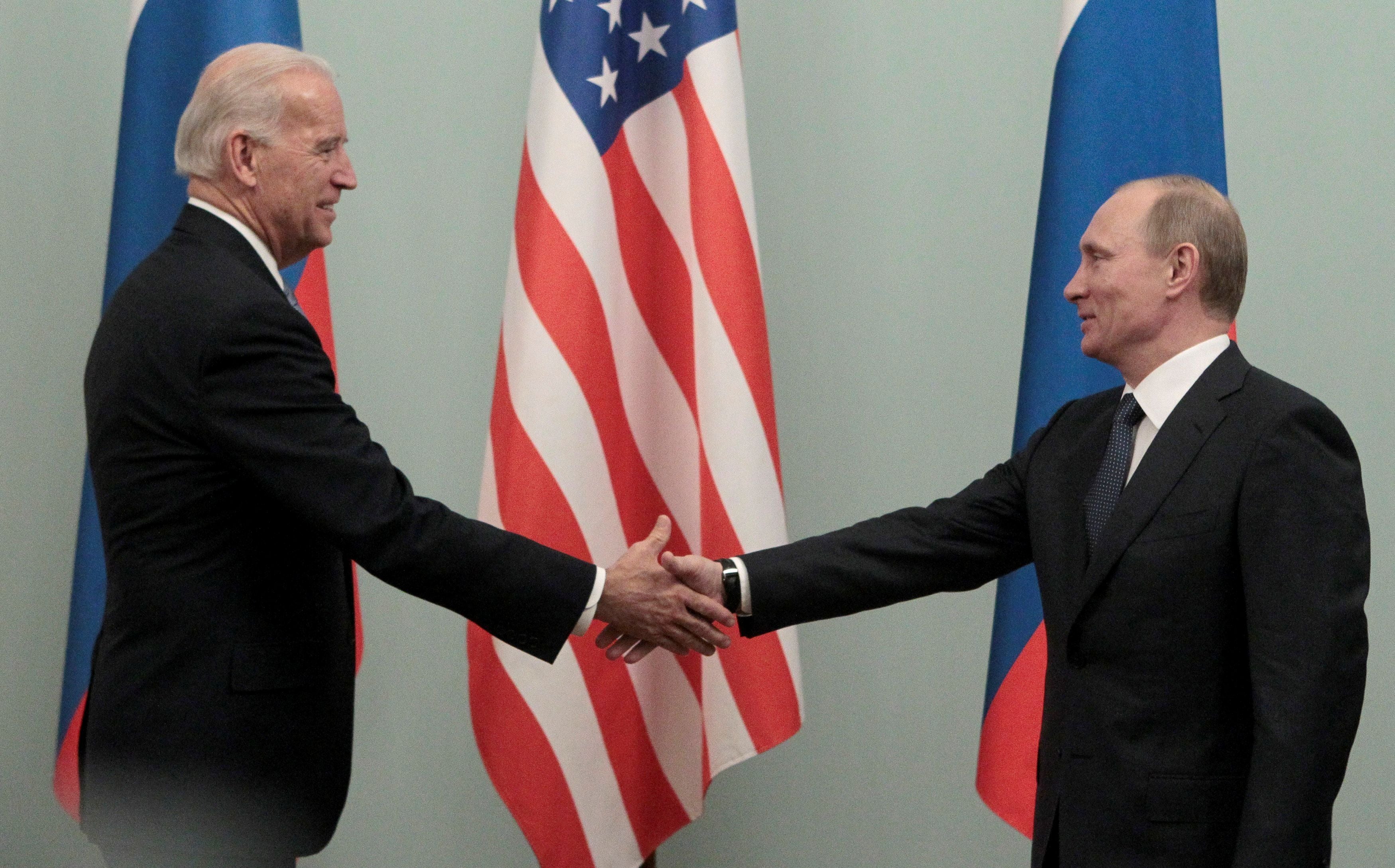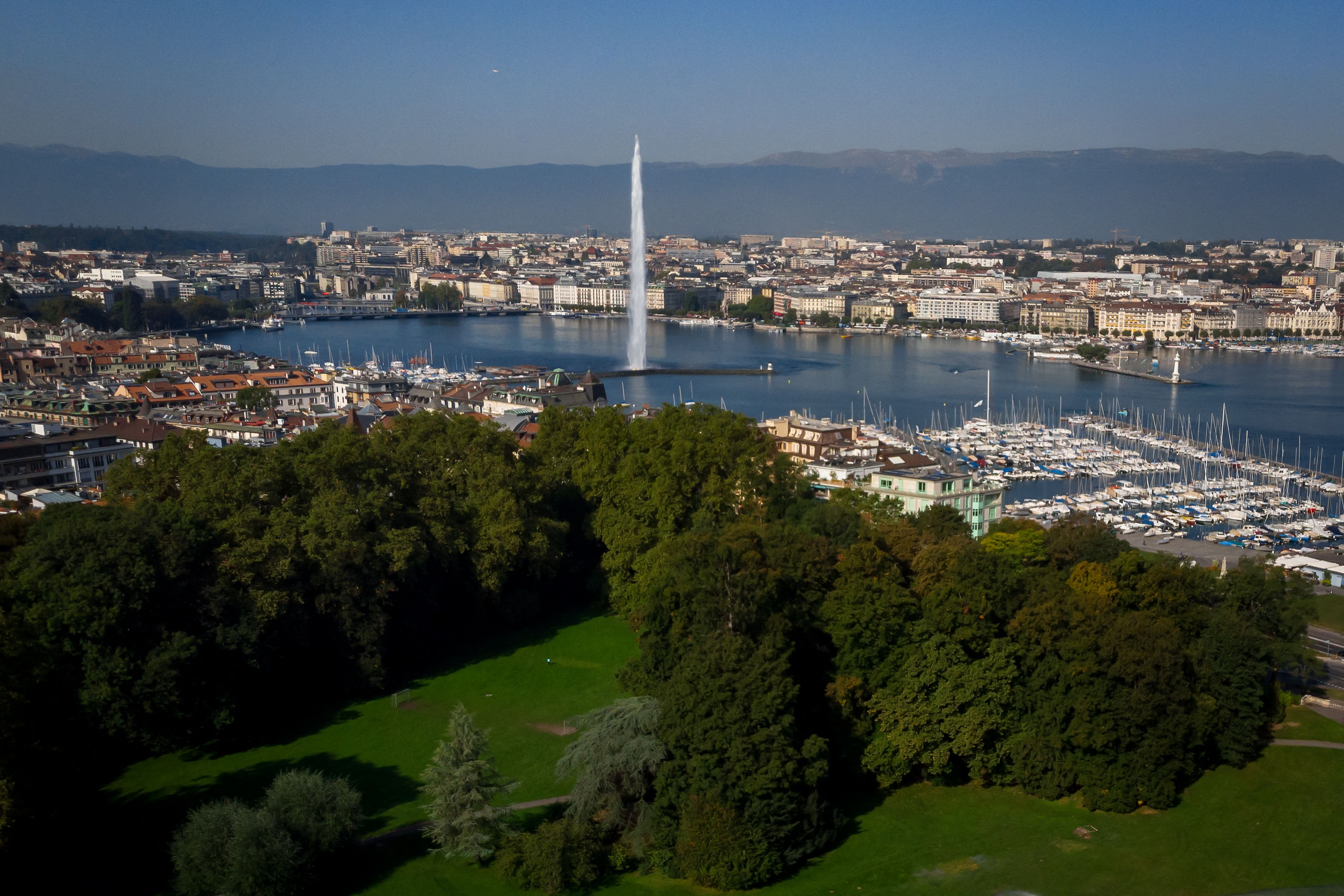Operation Normalise: Geneva gets ready to host Biden and Putin
Observers of US-Russia relations have expressed both optimism and concern about next week’s summit

Joe Biden and Vladimir Putin will meet on the banks of Lake Geneva next Wednesday for their first presidential summit in what promises to be an awkward affair following years of terrible bilateral relations, sanctions, wars, and mutual claims of domestic meddling.
But measured against the low standards of recent times, the eve of the summit has been marked by relative bonhomie between secretaries Sergei Lavrov and Antony Blinken at a preparatory meeting in Iceland.
It is expected, for example, that President Biden will not repeat face-to-face his description of Putin, a former KGB officer, as a “killer”. It is also assumed that President Putin will not wish Biden “good health” in return, a thinly disguised reference to propaganda claims that the 78-year-old American is senile.
But beyond that, all bets are off.
The initiative for the get-together came from Washington, which means the stakes appear to be somewhat higher for the US president, especially given the Kremlin’s propensity to obliterate criticism from the home crowd.
Yet Putin is not known for empty gestures; his agreeing to take part would seem to suggest that he thinks renewed contact is good. On an ordinary day, that should guard against a disastrous outcome.
There are obvious pressure points. The US distrusts Russia’s intentions in respect of its new generation of nuclear weapons. Russia is as wary of US conventional weapon capabilities.
Accusations of Russian hacking and interference have beleaguered the Biden presidency from the beginning. The Kremlin accuses the White House of funding insurrection against Putin. Several Americans, meanwhile – Paul Whelan, serving 16 years following a controversial conviction for spying, being the most prominent among them – remain in Russian prisons, apparent hostages as Moscow attempts to release its own from US jails.
Then there is the treatment and imprisonment of opposition leader Alexei Navalny, and the irritant of sanctions.

Relations have become so strained that they resemble a war-like footing, says Andrei Kortunov, head of the Russian International Affairs Council, a research institute considered to be close to the Kremlin.
Kortunov, a man not known for hyperbole, is one of a dozen Russian and western experts to have signed an open letter on the eve of the summit, warning of the prospect of major conflict.
The letter urges the presidents not to repeat “mistakes” made on the eve of the First World War. A flare-up of the seven-year conflict in Ukraine, in the opinion of the signatories, is the most obvious parallel to the 1914 killing of Franz Ferdinand in Sarajevo.
Kortunov tells The Independent that he sees the potential for a number of fatal miscalculations in Ukraine. Kiev could misinterpret the level of support it has in the west and “embark on an offensive operation”, he suggests – just as the Georgian leader Mikheil Saakashvili did on the eve of war in 2008.
Moscow, meanwhile, might think it safe to re-escalate the conflict, believing the west would repeat its mild-mannered response of 2014-15.
“The difference this time around is that both sides are armed to the hilt,” Kortunov says, “and the consequences could be desperate.”
Given the extent of disagreement about Ukraine, it is unlikely to become a major focus for discussions. Issues in neighbouring Belarus, as Russia embraces President Lukashenko’s increasingly ugly regime, are also likely to be parked in the “too difficult” box.
Prisoner exchanges fall into the same category. Paul Whelan’s twin brother David tells The Independent his family are hoping for the best, but see Geneva as no more than the first step in a “long conversation”.
Steven Pifer, a State Department veteran of the Clinton and Bush administrations, says the US side is likely to split issues into three categories.
The first, he says, includes issues on which the sides are too far apart for any early agreement, like Ukraine and Belarus. The second comprises US red lines.
“Putin will be given explicit warnings to desist from cyber attacks and interference in US domestic affairs – or face consequences,” the former ambassador suggests.
The third set of issues consists of those that are likely to form the main part of the agenda in Geneva.
Arms control is likely to be a central focus. Joe Biden, a veteran of the Cold War detente, has shown an obvious willingness to engage with Moscow on this matter.
One of his first tasks on inauguration, for example, was to agree to a short-term extension to the START II arms reduction treaty. As such, the sides are likely to agree to talks on the possible successor to the treaty, as well as on missile defence, cyber security, and conventional strike capacity, Pifer says. These will not be negotiations in the strict sense – for a start, Biden does not yet have an arms control team in place.
The Independent understands Moscow and Washington are indeed in the process of drawing up the outlines of a statement for leaders to discuss. The draft resolutions are mostly modest, with an emphasis on thawing frozen contacts, removing restrictions on consular work, allowing ambassadors to return – they were recalled to respective capitals for a period of “consultations” that has lasted months – and an agreement to talk about security issues, including Afghanistan and strategic stability.
Longtime US-Russia watcher Maria Lipman says the US appears to be entering the summit with “sobriety” and “realism”, understanding what it can and can’t achieve. It is significant, she says, that the managers of the world’s two largest nuclear arsenals are talking about nuclear stability.
But some members of Russia’s beleaguered opposition have expressed fears that US pragmatism means they will be thrown under the geopolitical bus. Leonid Gozman, a veteran opposition politician, says Putin will not be kept out of US politics without being offered something in return. The carrot could be ending sanctions and ceasing support for Russian democratisation, he suggests:
“Biden can’t give him Europe because that’s NATO. And he can’t give him Ukraine, because that’s his personal project. The only thing left is Belarus and Russia. It would be entirely logical, and in the US national interest, for them to make a private commitment to give Putin free rein over this part of the world.”
Other commentators have hailed the very fact of a meeting and possible communique as a breakthrough equivalent to the 1986 Reykjavik summit between Mikhail Gorbachev and Ronald Reagan. That meeting, driven largely by the idealistic convictions of the two leaders, was later viewed as the beginning of the end of the Cold War arms race.

Pavel Palazhchenko, who as Gorbachev’s translator was present during the most dramatic phase of negotiations during that era, says a better comparison would be the initial meeting that took place a year earlier, by coincidence also in Geneva. Those talks were the first meeting US and Soviet leaders had had for six years.
“Then and now, we’re now looking to find a way to normalise things,” Palazhchenko says. “It’s good that they both seem to recognise that it’s important. Trust is the other crucial thing, but that can only come later, built over a period of time through agreements on specific issues.”
The Kremlin is hesitant to make any parallels with Mr Gorbachev, having promoted a narrative that sees the last Soviet leader as a naive empire-wrecker, ready to serve the interests of the west before those of his own people. It was even reported that Russia rejected suggestions that the summit should take place at the same Intercontinental hotel as in 1985.
Symbolism isn’t the only thing at stake, suggests Andrei Kortunov.
“It’s wise to dial down expectations,” he says. “Putin isn’t Gorbachev.”
Join our commenting forum
Join thought-provoking conversations, follow other Independent readers and see their replies
Comments